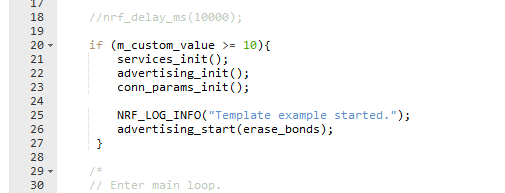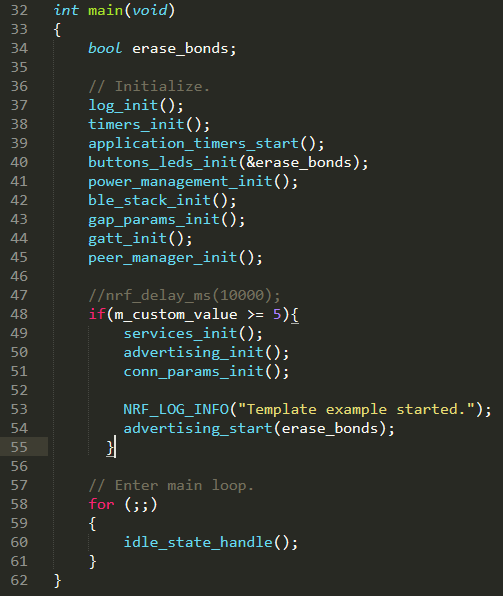Hi I managed to successfully implement a busy-wait using nrf_delay_ms(). However, I read that nrf_delay_ms() uses more power than app_timer's RTC. So I am trying to use app_timer to do a busy_wait for 10 seconds before calling the rest of the code after peer_manager_init() is called in main().
My busy_wait code works by checking whether m_custom_value is >= 10 before calling services_init() and the other functions.
The issue with my busy-wait code is services_init() and the other functions are never called (so no BLE advertising on the NRF). I have also tried using a while loop instead of the if conditional, but that did not work either. m_custom_value is incremented every second by a repeated app_timer which is initialized and starts before the busy-wait code.
Is this an issue with app_timer when main is called or am I just not creating the busy-wait correctly? Thanks!
int main(void)
{
bool erase_bonds;
// Initialize.
log_init();
timers_init();
application_timers_start();
buttons_leds_init(&erase_bonds);
power_management_init();
ble_stack_init();
gap_params_init();
gatt_init();
peer_manager_init();
//nrf_delay_ms(10000);
if (m_custom_value >= 10){
services_init();
advertising_init();
conn_params_init();
NRF_LOG_INFO("Template example started.");
advertising_start(erase_bonds);
}
/*
// Enter main loop.
for (;;)
{
idle_state_handle();
}*/
}




